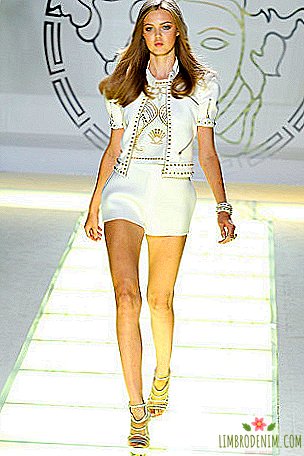Question to the expert: Why the “third sex” option does not help intersex people

Dmitry Kurkin
Last week german parliament Adopted a law permitting to indicate on the birth certificate a different gender besides the male and female - namely, “diverse” (“different”). This norm is provided only for intersex people, and in order to change documents already at a mature age, a person insisting that his sex be defined as "diverse" will need to undergo a medical examination. These restrictions have already caused harsh criticism from activists and activists of both intersex communities, whose members do not always attribute themselves to the “third floor”, or to gender-non-binary people who are denied self-determination in the new law.

The concept of the "third sex" and "third gender" is not new, its rudiments appeared in the times of traditional communities. As examples of the “third gender”, Polynesian faafafine is sometimes cited (by biological men, who are educated as women from childhood), the Hijra caste (quite a vague term that unites people who live as women, although birth were not defined as women), Albanian “oath virgins” (women taking on a male gender role in their community) and other “special cases”. It should be noted that all of them appeared even when humanity did not fully share the notions of biological sex and gender (gender set a social role by default), and therefore rather strengthened the idea of sexual binarity and the social inequality caused by it. In addition, they are often associated with exploitation and sexual slavery (including child slavery), severe restrictions (vows took celibacy) and mutilating operations (the procedure of castration is required for admission to the Hijra).
But even such examples of fitting people under the strict categories "M" and "F", apparently, indicate that people did not notice yesterday that there are intermediate divisions on the biological scale between men and women. Is it right to call these divisions "third floor"? How does the new German law meet the demands of intersex people and are there other examples of the implementation of the concept of a third gender marker? We asked about this Irina Kuzemko, an intersex activist, co-founder of Intersex Russia.
Irina Kuzemko
Intersex activist, co-founder of Intersex Russia.
 Most people are accustomed to assume that gender is binar and there are only conditional "man" and "woman", each of which has its own set of sexual characteristics. Biological sex, however, is much more diverse. For example, 1.7% of the world's population are intersex people whose sex characteristics do not match the typical definition of a "male" or "female" body. Most intersex variations are natural and do not carry health risks.
Most people are accustomed to assume that gender is binar and there are only conditional "man" and "woman", each of which has its own set of sexual characteristics. Biological sex, however, is much more diverse. For example, 1.7% of the world's population are intersex people whose sex characteristics do not match the typical definition of a "male" or "female" body. Most intersex variations are natural and do not carry health risks.
People are generally different from each other: their genitals differ in shape and size, they have different hormone levels and secondary sexual characteristics like body hair, muscle mass or breast size. In other words, biological sex is a whole spectrum. And the “third floor” is a rather incorrect phrase, because there is simply no third “separate sex”.
The “third gender” also does not seem to me an ideal formulation. I consider the English gender "third gender marker", that is, the "third gender marker", to be more successful. The term "third version of the passport floor" is also correct. Our community is still discussing how to better name the third gender marker: I personally am not against the name "diverse", but it would be better to call it "X" or give people the opportunity to leave the sex box in the passport empty. The main thing is that the third gender marker is not called Intersex.
If it is customary in the country to indicate the gender in the documents, the third gender marker should be accessible to all, and the procedure for obtaining it should be as simple and transparent as possible. At the same time, the majority of intersex activists believe that the ideal option would be a complete refusal to indicate gender in documents - such a reform could greatly simplify the life of intersex, transgender and non-binary people, as well as deprive doctors and parents of one of the main reasons for hurrying with the conduct of mutilated "normalizing" operations on intersex children - temporarilygo windows to select the floor in the documents of the child. If the need for an urgent choice disappears, it will allow you to postpone any medical interventions in the body of a healthy child, allowing him to grow up as he is and independently determine who he feels and what he wants to do with his body. This is what the intersex community is seeking.
What is wrong with the new German law
The law passed in Germany is another example of the disastrous misunderstanding by politicians of the goals and needs of the intersex community. Many politicians still believe that all intersex people have a non-binary gender identity and they all want a third gender marker. This is not the case: intersex people have any gender identity, but according to statistics, most of us identify ourselves as women or men (75% of those surveyed in the largest study of the intersex community). In other words, most intersex people are pleased with the gender markers “M” or “F” in their documents.
What is important: some intersex people really want to be able to choose the third option of the passport floor in the documents, but all other people may want the same. The law also makes the third marker available only to intersex people who have a certificate from a doctor. I believe that no one should go through medical interventions or receive a certificate from a doctor in order for his documents to reflect gender identity. Many intersex people have experienced traumatic experiences with doctors, many have been subjected to unnecessary medical interventions. The law obliges them, for the sake of changing documents, to relive their trauma and undergo an examination. In addition, in the current formulation, this approach encourages the treatment of intersex variations as pathology.
Perhaps the most negative consequence of the adoption of this law may be the assignment of a third marker to newborn intersex children. He will spin out the child, separating him from his peers, depriving him of privacy and putting him at risk and at risk of discrimination. This practice will not save intersex children from crippling "normalizing" operations, but, on the contrary, will increase the likelihood of their conduct: parents may rather agree to the operation in order to avoid a special label in the documents.
How else is the concept of the third gender marker implemented?
The third gender marker is available in many countries, for example in Austria, Australia and New Zealand. In different countries, it is embodied in different ways: somewhere good, somewhere not very. Best of all, I would say, it is set up in Malta, the only country in the world where crippling operations on intersex children are prohibited by law. There it is not necessary to register sex at birth, and any person can change their gender marker at will using a simple administrative procedure, without medical interventions or medical certificates, choosing from three options: "male", "female" or "X".
The Maltese Declaration, the main document of the world intersex movement, argues that the intersex community requires “to register intersex children as women or men, given that, like all people, they can identify with the other sex or gender when they grow up” and “to ensure a change in gender or gender using a simple administrative procedure at the request of the persons to whom it relates. All adults and eligible juveniles should be able to choose between female (G), male (M), non-binary or with several options. In the future, just as with race or religion, gender and gender should not be indicated on birth certificates and identification documents for anyone. "
PHOTO: radachynskyi Hofacker - stock.adobe.com (1, 2, 3)




